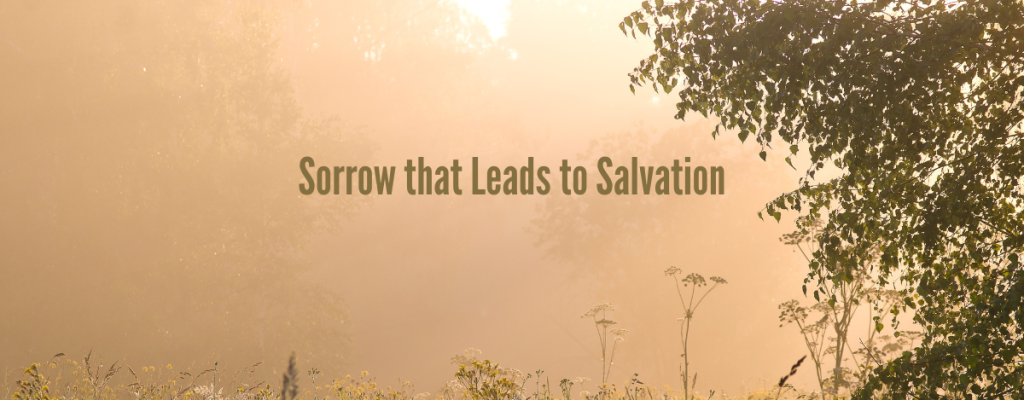You have turned my mourning into joyful dancing.
You have taken away my clothes of mourning and clothed me with joy,
that I might sing praises to You and not be silent.
O Lord my God, I will give You thanks forever!
Psalm 30:11-12 (NLT)
Series Focus: “Piece by Piece”
Years ago, I endured a hardship that resulted in great personal loss. The struggle to make it through a day—even mere moments—battered my mind, heart, and soul. Though my physical needs seemed to have been met outwardly, my psyche had fully engaged in survival mode. Numb to everything around me, and unable to see a way out, I wrestled to make it through each day.
Everyone experiences disappointment, loss, and tragedy. The fallout left behind by the trauma endured can be life-altering. When the hits keep coming, we may lose all hope for any good. We may even throw caution to the wind and respond by making reckless choices and developing harmful habits. As lonely as those seasons are, and as isolated as the enemy may cause us to feel, none of us are alone in our suffering.
Let’s turn to the book of Ruth. This short book of four chapters covers years of history in the first few verses. Naomi and her husband Elimelech lived in Bethlehem with their two sons, Mahlon and Chilion. A famine occurred in their land, and so they traveled and settled in Moab. Elimelech died, leaving Naomi as a widow with her two sons. Naomi’s sons grew and married Moabite women, Orpah and Ruth. Within ten years of living in Moab, Mahlon and Chilion also died, leaving Naomi widowed and childless.
Regardless of her tragic loss, Naomi still acknowledged the Lord and His hand upon her and her daughters-in-law. In Ruth 1:8-9 (NASB), Naomi said to Orpah and Ruth:
“Go, return each of you to your mother’s house. May the Lord deal kindly with you as you have dealt with the dead and with me. May the Lord grant that you may find a place of rest, each one in the house of her husband.” Then she kissed them, and they raised their voices and wept.
Naomi, amid her suffering, prayed for God’s blessing upon Orpah and Ruth. Through the tears of tragedy, her faith still existed. Orpah heeded Naomi’s urging and returned to her family, while Ruth remained with Naomi. In this period of time, women—and especially widows—had no legal or economic rights. Naomi and Ruth had no clear title to own land and no resources to make a living. What would the next step be? Naomi, with Ruth by her side, returned to her homeland. Ruth 1:19-22 (NASB) continues the account:
So they both went on until they came to Bethlehem. And when they had come to Bethlehem, all the city was stirred because of them, and the women said, “Is this Naomi?” But she said to them, “Do not call me Naomi; call me Mara, for the Almighty has dealt very bitterly with me. I went away full, but the Lord has brought me back empty. Why do you call me Naomi, since the Lord has testified against me and the Almighty has afflicted me?” So Naomi returned, and with her Ruth the Moabitess, her daughter-in-law, who returned from the land of Moab. And they came to Bethlehem at the beginning of barley harvest.
Do you hear Naomi’s sadness? Can you feel her loss? Bitter from her suffering, Naomi’s faith seems lost. It was enough to encourage and pray for Orpah and Ruth, and it led her back to Bethlehem…but now, at the end of the journey, Naomi seems to be running on empty. Have you experienced that? In seasons of pain and loss, our faith may continue to be rooted and grounded and active. Yet, when completely exhausted and depleted, we sometimes are only able to apply our faith to others’ situations and not at all to our own.
In her mourning, Naomi counseled Ruth. She encouraged Ruth to connect with the women who worked in the fields of Boaz, a relative of Naomi’s deceased husband. She instructed Ruth in how to humbly serve Boaz. No additional prayers of Naomi are recorded in the Book of Ruth. However, knowing she prayed over Orpah and Ruth in chapter one, it would seem that Naomi continued to pray as she guided Ruth in her relationship with Boaz.
Through a series of events, Boaz married Ruth, as her kinsman redeemer. He acquired the land Elimelech, Mahlon, and Chilion had owned and restored it to Naomi and Ruth, perpetuating the legacy of their deceased husbands. In time, Boaz and Ruth gave birth to a son, Obed, who became the father of Jesse, who fathered King David, all of whom are in the lineage of Jesus. Upon the birth of Obed, Ruth 4:14-15 (NASB) provides this account:
Then the women said to Naomi, “Blessed is the Lord who has not left you without a redeemer today, and may his name become famous in Israel. May he also be to you one who restores life and sustains your old age; for your daughter-in-law, who loves you and is better to you than seven sons, has given birth to him.”
When tragedy blindsides us, tear-filled eyes can blur our vision for any hope of a good future. But we are not alone in our suffering. Just like Naomi, seeing through tears is not the end of our stories. Not only do we have each other to lean on—for none of us are immune—we have Jesus. He took our suffering and our pain upon Himself. God has not left us without a Redeemer. Jesus is our Salvation, our Hope, our Healer, our blessed Redeemer. He restores life to us and sustains us through every hardship. Let’s keep our eyes on Him.
Holding Fast to Hope,
Maryann
Scripture References: Psalm 30:11-12; Ruth 1-4; Isaiah 47:4, 53:4-5

